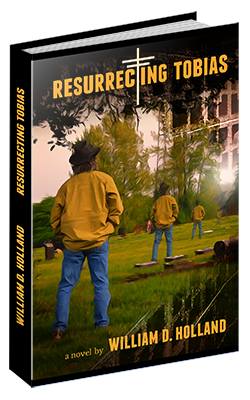The Writer's Mailbag: Installment Twenty-Six
A Bushel Basket Full of Questions
So here we go again. You know how this works, so I won’t bore you with the details. Thanks to all who asked questions this week, and since this is Christmas week, I want to take this opportunity to say Happy Holidays and Merry Christmas to all of you who celebrate this time of year.
And now, on with the show. We will start with a question from Sha about the nuts and bolts of writing.
From my dear friend Sha: “ I have some questions for you:
1. Do you draft in Word?
2. Do you start a new doc for each chapter or do you continue on with one document?
3. Do you save your first draft as is, then 'save as' your second draft?
4. When making character and setting notes, do you do it on paper or do you create an electronic document?”
These are questions pertaining to how one writes a book. The actual nuts and bolts related to the procedure, and it’s one of those things I take for granted without really thinking about why I do it. Let’s see if I can answer them all with some degree of intelligence.
I draft all my novels on Word. In the old days I wrote my stories and novel-beginnings longhand on a yellow legal pad, but I’ve had nerve damage to my writing hand since those days, so I have to use Word now. For me it’s a matter of convenience and necessity. I simply can’t read my handwriting.
I do not start a new Doc for each chapter. I keep the whole manuscript on one Doc, and again, it is for convenience. I like shortcuts whenever possible, and this is one of them. Having said that, it is crucial that I backup and save my document on a regular basis. I also periodically send the manuscript to myself in an email as another backup strategy.
The third question has me a bit confused, mainly because I don’t talk computer talk. I give the manuscript a title and “save as” right after the first words are written, and it remains that way until I am done.
The character and setting notes are all done on a Doc, again, because I can no longer write longhand.

Length of a Novel
From Melissa: “One question/clarification: When you write the first draft, without doing any editing, how long does it end up being? Are you saying first draft is 75,000 and then second draft (when you add the 25%) ends up with a total of 100,000?”
Rather than answer the question the way it is worded, let’s just say that about ¾ of the novel is in the first draft, and ¼ of it will be added in the second draft. I say it that way because 100,000 words is just an average novel length, and it is also the length most book publishers prefer.
Please remember that these are averages I’m tossing out at you. There are some writers who will do 50% of the novel in the first draft, and 50% in the second. We all follow our own inner voice when it comes to writing.
The Ending of a Novel
From Travmaj: “I note you begin with an opening and an ending - does the ending ever change as the novel takes place and the characters begin to dictate?”
Another great question, and the answer is yes, that has happened. My first novel, “The 12/59 Shuttle from Yesterday to Today, did not end the way I envisioned it when I began. It turned out the characters had a different ending in mind, and since it was their story, I decided their way was the best way.

Novel Questions
From Bradmaster: “What is your goal usually for total word count, and how many chapters will satisfy the story? How do you pick the voice of your story, such as first person or other?”
Three questions from Brad and all of them great ones. My goal for word count is 100,000. Why? Because that seems to be the magic number for most traditional publishing houses, and that’s my ultimate goal, to be published by one of those traditional publishing companies.
I think the number of chapters is really up to the writer. I usually start a new chapter when I have finished a particular scene. I also try to keep my chapters fairly short, but that’s just a personal preference. I try to keep in mind that most readers have a short attention span, so I write shorter chapters to keep them interested and also to keep the story moving quickly.
I writer primarily in first person because that allows me to get inside the head of the main character and do some philosophizing,…but that’s just me. I do bounce to third person throughout as I show what other characters are doing and thinking, but the majority of my books are written in first person. How does one decide? I really think it depends on which way is most comfortable.
SELF-PROMOTION
From Nils: “A question: I may scorn those interactive platforms but am out there thumping my own chest as much as I can. I am somewhat concerned with this new habit. Does it help to promote your image as a 'writer' at all? To create a brand as it were?”
The quick answer is this: if a writer does not promote his/her work, then who is going to do it? If we are serious about being a freelance writer, or an author, then we have to get serious about marketing. We are the business and our writing is our product. I don’t know how to say that more clearly.
Having said that, I think there is a fine line we don’t want to cross. We can over-promote ourselves, just as we can under-promote. Always keep that in mind when you are tooting your own horn.

Creatiing Scenes
From Linda: “I am interested in your suggestion that writers should appeal to the readers' primal level--excite their senses. You certainly do that, and do it well. When one of your characters was in combat, we (readers) could see, smell, and hear everything he was witnessing as we walked with him through the jungle.
To create scenes like that do you interview people who have had such experiences, do tons of research, or do you have an incredible imagination?”
All three, Linda, or only one, depending on the subject matter
The scene in “Resurrecting Tobias” that Linda is referring to was done from talking to friends who served in Vietnam. Some of the other references to war came from discussions I had with my father, who was a WWII veteran.
Some scenes require research. There were several cities mentioned in “Tobias” that I had never visited, so I had to research the street names and general layout of the cities. There were several cities I had visited, and the sights and sounds of those cities I remembered.
And then there is my ever-present imagination, which I call upon when all else fails. Like many other writers, many of my scenes are compilations of many scenes I’ve witnessed over my sixty-six years. One scene in particular in “Tobias,” where Toby is walking through the seedy part of Portland, Oregon, and he stops to talk to a prostitute….that was many scenes from my past combined into one. I spent a week on the streets homeless, so I didn’t have much trouble remembering what that was like.
More Next Week
I hope you are enjoying this series as much as I am. I think when writers share information, ideas, and experiences, everyone wins. I will never understand hoarding knowledge, but I know some who do it. I will never understand not sharing, but I know some writers who do not, and I will never understand not helping and supporting other writers.
What I give you here is simply my opinion and whatever knowledge I have. I give it to you freely, as it was given to me, and I also give you the guarantee that if you need my help, all you have to do is ask.
Is that really so unusual?
Pax Vobiscum!
2014 William D. Holland (aka billybuc)
“Helping writers to spread their wings and fly.”








